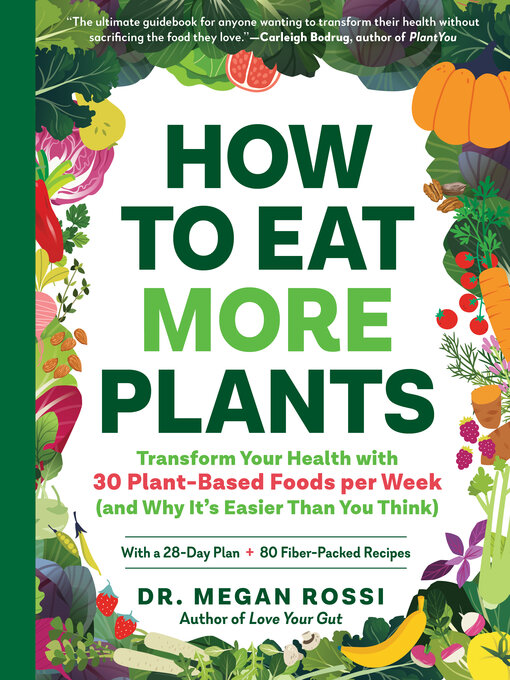From the award-winning gut health doctor and author of Love Your Gut comes a medically proven guide—featuring the revolutionary Plant Point plan—that makes it easy to fuel up on fiber and nutrients by eating 30 or more plant foods each week
"A must-have guide to plant-based eating."—Dr. Will Bulsiewicz, NYT–bestselling author of Fiber Fueled
"This is the ultimate guidebook for anyone wanting to transform their health in a practical, sustainable way without sacrificing the food they love."—Carleigh Bodrug, NYT–bestselling author of PlantYou
Happy gut microbes are the key to our health goals—they support our brain, skin, immunity, hormones, metabolism, and more. In How to Eat More Plants, Dr. Megan Rossi explains how to give your gut what it really craves—variety!


